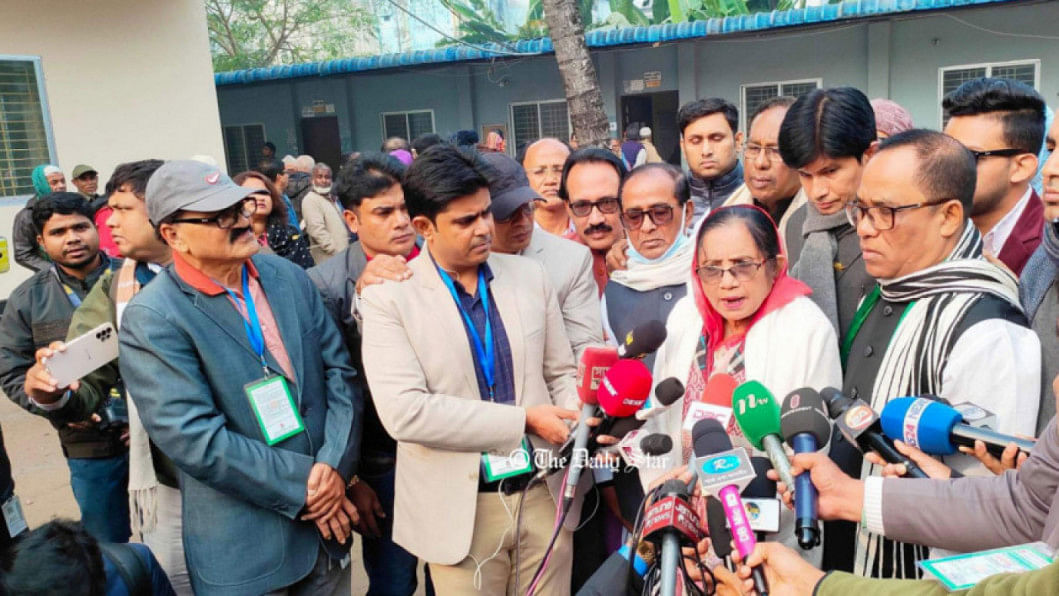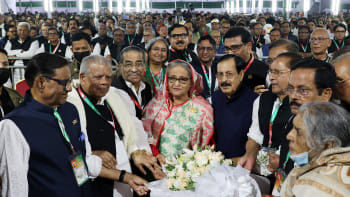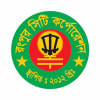Dalia’s defeat: What really failed AL in Rangpur City?

In the recently concluded Rangpur City Corporation (RpCC) election, Awami League's mayor candidate, Hosne Ara Lutfa Dalia, lost her security deposit as she failed to secure the minimum number of votes required for saving the deposit.
Defeat of the ruling party candidate was expected, though, as Rangpur is popularly known as a stronghold of the main opposition in the parliament, Jatiya Party (JP), and also the hometown of its founder, the autocratic former ruler HM Ershad. In fact, the AL's top leadership might also have been aware of the possible result and had an intention of giving a walkover to the JP candidate.
But did anyone expect that the ruling party candidate would lose her security deposit or manage to bag only eight percent of the votes? Or that she would place fourth in the race?
Obviously not. In fact, this is a nightmare for the AL and something it would surely try to shake off as soon as possible.
Although during the election campaign, the AL candidate had highlighted the development activities of the government, none of that seems to have mattered when voting came around.
Despite it being a stronghold of the Jatiya Party, the ruling AL has a very good position in Rangpur. The first mayor of the city corporation, in 2012-2016, was AL-backed Sarfuddin Ahmed, who had defeated Mostafizar Rahman Mostafa. In the second polls, Mostafizar won, defeating the AL candidate. But this time, the defeat of the ruling party candidate was a shameful one.
So, what was different this year?
One factor is that the party possibly failed to pick the right candidate for the RpCC polls. Dalia is a lawyer by profession and a loyal and seasoned politician. But things changed when she became a lawmaker through a reserved women's seat in the last parliament. Since then she got disconnected with the people at the grassroots level as she mostly lived in Dhaka. Hence, other ruling party aspirants getting ahead in that regard and intra-party feuds also contributed to AL's defeat.
That's why we saw an Awami League leader, Latifur Rahman, rebelling against the party's decision to contest the election, and subsequently getting more votes than the party-nominated candidate herself. But he, too, lost his security deposit.
Still, it is evident that the party's selection of a candidate was not right.
But the AL general secretary, Obaidul Quader, told journalists that the choice of candidate was correct, and that there were some internal issues.
"We have some intra-party problems there [in Rangpur] …We are looking into those. We are going to take major organisational action in Rangpur within a week."
But intra-party problems are not the only reason behind the defeat of Dalia.
The other, and to me the most significant point, is that the ruling party's influence over the JP is an open secret to all. And something that the people of Rangpur did not take positively. Whenever the national election comes around, the AL tries to put pressure on the JP. They say that the JP has played a very crucial role for the ruling party in every election since 2009.
But Jatiya Party leaders were not properly or duly treated by the ruling party members. Many believe that if JP had not sided with the ruling party, it would have been tough for the Awami League to continue in office for as long as it has done.
This other point to note is that Ershad's home is located in the RpCC area, whose inhabitants are known to be very close with and loyal to the late former president. In recent months, the drama over JP leadership – between GM Quader and Rowshan Ershad – also angered Ershad supporters. So they showed their maximum strength voting for Mostafizar.
A stunning detail from the RpCC polls is that Amiruzzaman Pial of Islami Andolan Bangladesh secured the second position, defeating both the AL and its rebel candidate. Many said that Amiruzzaman got votes from BNP supporters, who only wanted to ensure a humiliating defeat for the ruling party. Of course, the BNP's position in this northern district is very poor and its election results in recent history have been dismal.
Besides all this, the RpCC polls also proved that Electronic Voting Machines (EVM) will be a big challenge in countryside polling stations. Media reports show that voting was slowed down due to the use of EVMs. The situation was worse in recent times as voting continued in a few centres till 8pm. Chief election commissioner, Kazi Habibul Awal, said, "Electronic Voting Machines (EVM) are slow. Besides this, voter turnout is also high. For this reason, voting can be done till 8pm in the night."
So before taking any final decisions on using EVMs in the next polls, the Election Commission will hopefully think carefully. Otherwise, disaster may ensue as the national election will be held for 300 seats in a single day.
Elections are like a festival for the people of Bangladesh. People want to take part in the festivities, and it is the responsibility of the Election Commission to create an atmosphere that people feel welcome to join.
The lesson to learn for the ruling party is that its activists and supporters are its heart, as they hoisted party flags in the remotest parts of the country defying all odds. So, the AL must think of what those at the grassroots want before picking any candidate. Otherwise, humiliating defeats will occur in free and fair polls.
Mohammad Al-Masum Molla is deputy chief reporter at The Daily Star.

 For all latest news, follow The Daily Star's Google News channel.
For all latest news, follow The Daily Star's Google News channel. 







Comments